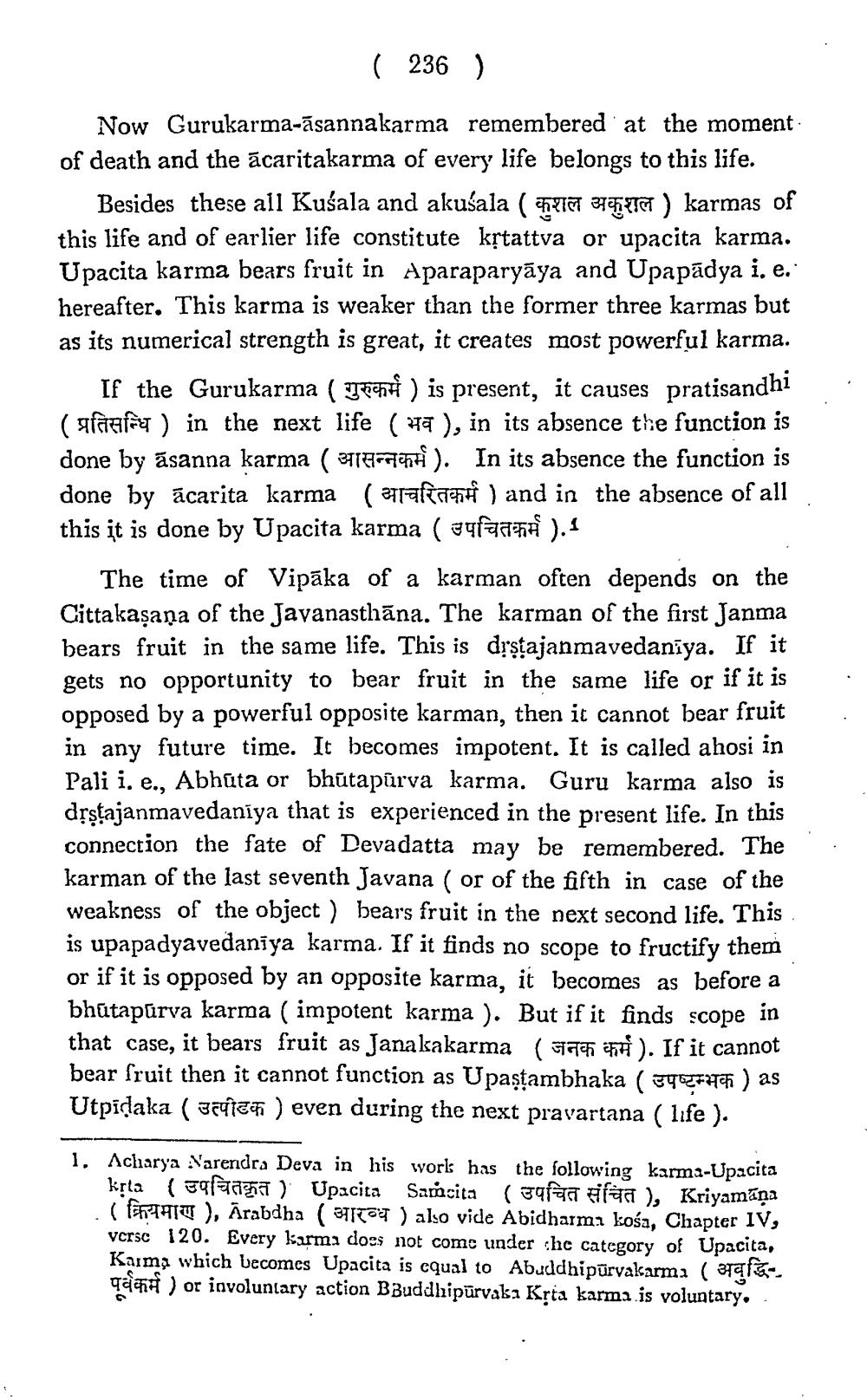________________
( 236 )
Now Gurukarma-āsannakarma remembered at the moment of death and the acaritakarma of every life belongs to this life.
Besides these all Kušala and akušala (pila 37072TT) karmas of this life and of earlier life constitute kstattva or upacita karma. Upacita karma bears fruit in Aparaparyāya and Upapādya i. e. hereafter. This karma is weaker than the former three karmas but as its numerical strength is great, it creates most powerful karma.
If the Gurukarma ( Teichp) is present, it causes pratisandhi (graafia) in the next life ( 77 ), in its absence the function is done by ásanna karma ( 271847 ). In its absence the function is done by ácarita karma (1771797 ) and in the absence of all this it is done by Upacita karma ( उपचितकर्म ).
The time of Vipāka of a karman often depends on the Cittakaşaņa of the Javanasthāna. The karman of the first Janma bears fruit in the same life. This is drstajanmavedaniya. If it gets no opportunity to bear fruit in the same life or if it is opposed by a powerful opposite karman, then it cannot bear fruit in any future time. It becomes impotent. It is called ahosi in Pali i. e., Abhata or bhūtapūrva karma. Guru karma also is dřstajanmavedaniya that is experienced in the present life. In this connection the fate of Devadatta may be remembered. The karman of the last seventh Javana ( or of the fifth in case of the weakness of the object ) bears fruit in the next second life. This is upapadyavedaniya karma. If it finds no scope to fructify them or if it is opposed by an opposite karma, it becomes as before a bhūtapūrva karma ( impotent karma ). But if it finds scope in that case, it bears fruit as Janakakarma (97972h ). If it cannot bear fruit then it cannot function as Upastambhaka ( 5462472 ) as Utpidaka ( 3691ET ) even during the next pravartana ( life ).
1. Acharya Varendra Deva in his works has the following karma-Upacita
kļia ( Eflani ) Upacita Sarocita ( sofa biga), Kriyamána (FETHIT ), Ārabdha ( 37170 ) ako vide Abidharmı kośa, Chapter IV, versc 120. Every karmı does not come under che category of Upacita, Kaima which becomes Upacita is equal to Abuddhipüryakarmı qan) or involuntary action BBuddhipūrvaka Kția karma.is voluntary. -




